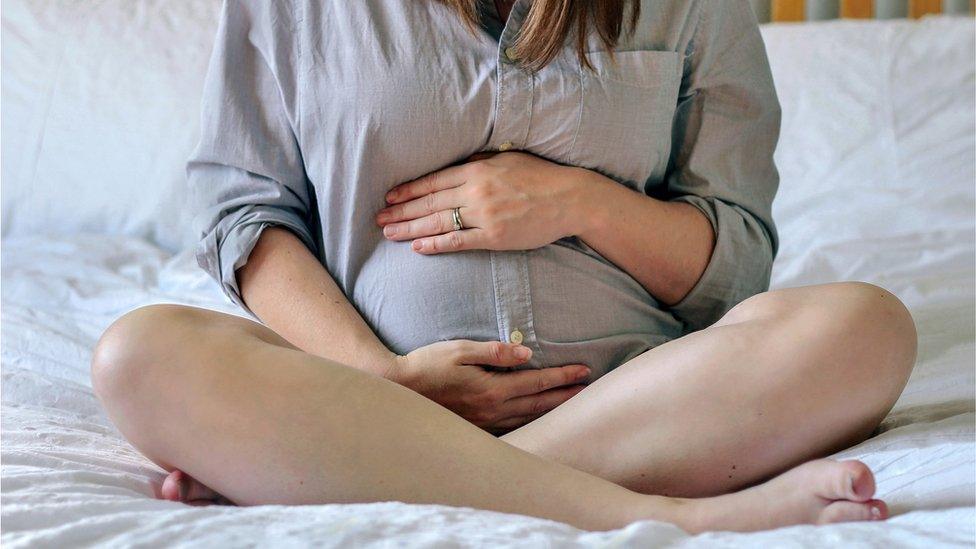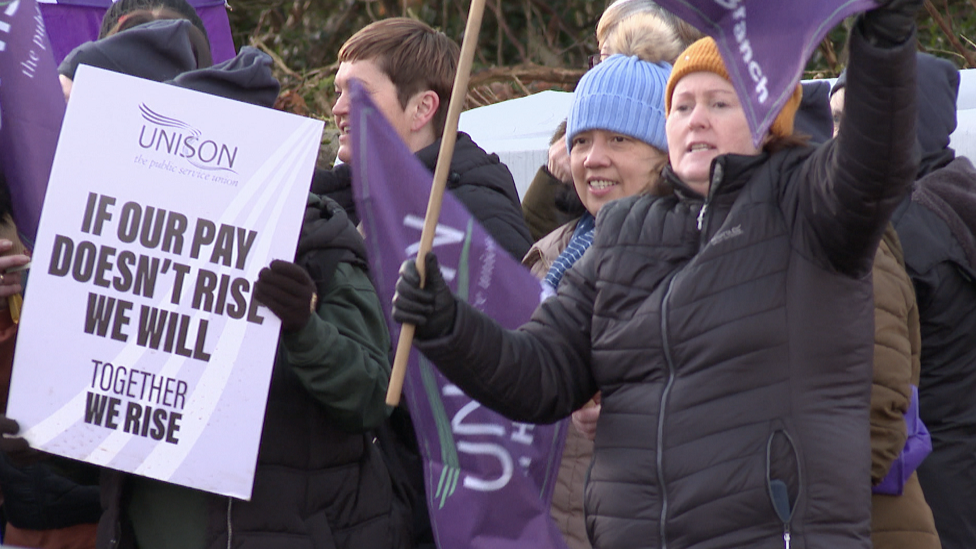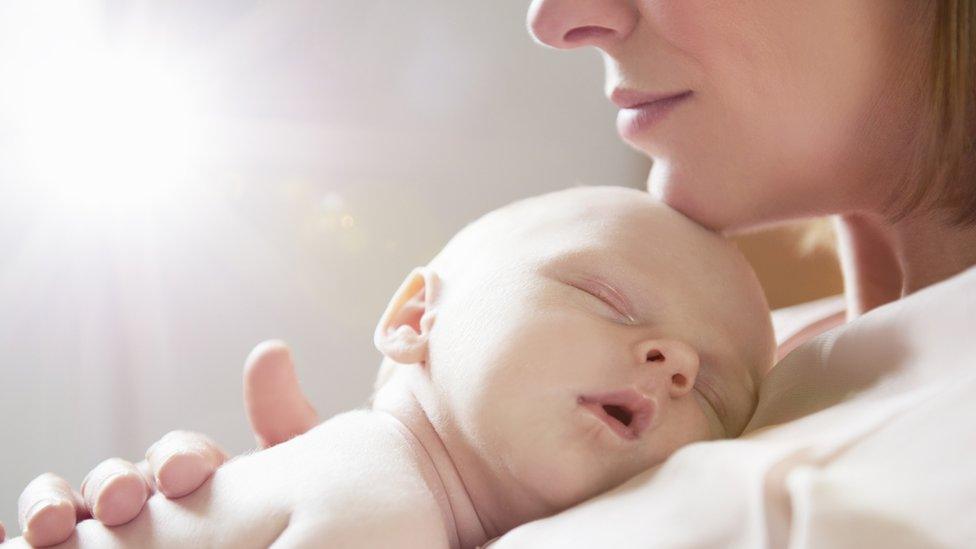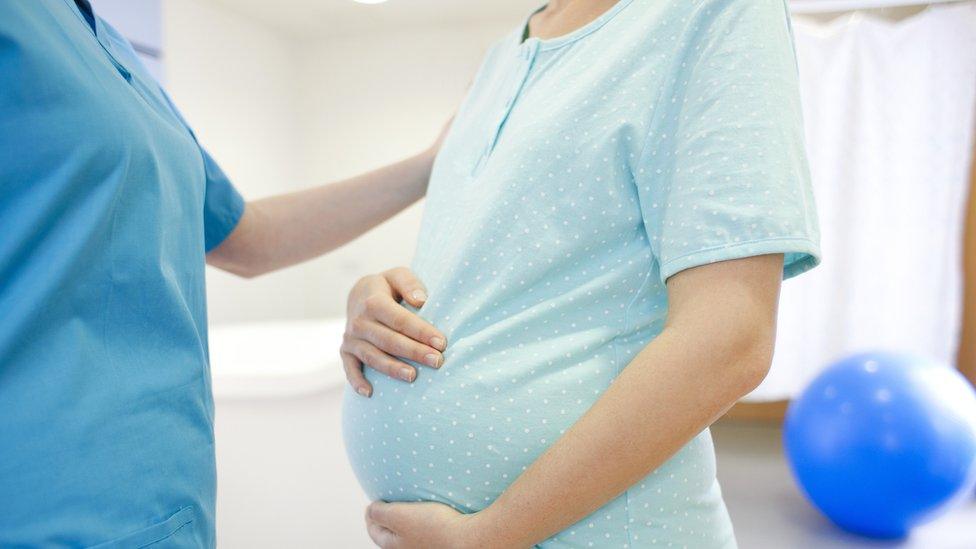Midwives strike: NI women and babies will not be at risk, say union
- Published

Women and babies will not be "at risk" if midwives vote in favour of industrial action, the Royal College of Midwives (RCM) in Northern Ireland has said.
The RCM is balloting members following a consultation in November where about 90% of midwives voted to strike if a 4% pay award was implemented.
Midwives in Wales have already voted to walkout on 7 February.
It comes after a series of public sector and health strikes in the UK.
The ballot opens on Tuesday and runs until 7 March. Members then have 28 days to take action.
RCM Director for Northern Ireland, Karen Murray, reassured pregnant women that if industrial action went ahead "the safety of women and babies would be paramount".
She said any strike would be more like a bank holiday service and patients could "still expect safe care".
"Some core services would be stood down - outpatient clinics being an example - but we would make sure the major areas like theatre and delivery suites, labour wards have sufficient staff there on that particular day," she told BBC Radio Ulster's Good Morning Ulster programme.
"We did this in 2015 when we last took industrial action, with huge public support but also were still able to make our point and maintain safe services," she added.
'Not in their DNA'
Ms Murray said the consultation had given a "clear message" that they were prepared to take industrial action over pay and working conditions.
"That's a huge step for midwives," she said. "It's not in their DNA or something they choice to do lightly."
However, she said midwives had been "pushed into a corner, with no other way to express their frustration and anger".
"Midwives and Maternity Support Workers (MSWs) work well above and beyond on a daily basis to ensure women, babies and their families get safe care," she said.
She said staff regularly missed their breaks and worked extra shifts to support services but also "to make ends meet".
Members were exhausted and "at the end of their tether", she added.

Last week more than 20,000 healthcare staff in Northern Ireland took part in a one-day strike as part of a pay dispute.
"We are the only region in the UK without an active maternity strategy.
"We need a review of maternity services to ensure we have a safe effective service that retains those midwives," she added.
In Scotland, while RCM thresholds were met for midwives taking part in strike action, unions are in negotiations with the government around a revised offer.
On Wednesday, hundreds of thousands of workers will will walk out across the UK - including teachers, train drivers, civil servants, university staff and bus drivers from seven unions.
On Monday, firefighters in Northern Ireland voted to strike.
The fire services said all contingency options were being considered, which could include bringing in the Army to cover callouts.
In England and Wales, ambulance workers are to join nurses in taking strike action on 6 February in what will be the biggest NHS walkout in this dispute.
Related topics
- Published21 November 2022

- Published1 August 2023

- Published26 January 2023

- Published23 January 2023
